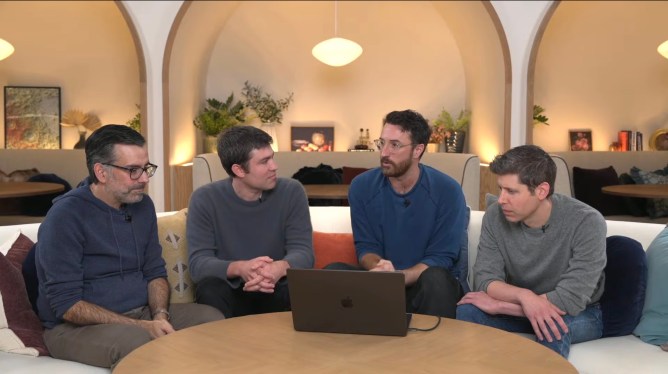Today, OpenAI launched its new Atlas web browser in a surprise livestream. The show started with CEO Sam Altman speaking directly to the audience. He stated that AI represents a rare, once-a-decade opportunity to rethink what a browser can be. Altman explained that just as the URL bar and search box were central to the previous way people used the internet, the chat experience and the web browser are becoming the new model. This was an inspiring note, delivered in a classic style.
More important than the introduction of the new browser was what it was replacing. The presentation framed present-day browsers as part of an old package of services being replaced by AI, which Altman referred to as the previous way people used the internet. Many of these soon-to-be obsolete services originate from a single company, Google.
OpenAI’s browser project has been an open secret in Silicon Valley since at least this summer. It was clear from the beginning that it posed a potential threat to Google, the current owner of the world’s most popular browser. The recent product details made it clear how much the web giant has to lose in the AI era, and how little Google’s success with its Gemini AI seems to have mitigated the threat.
The immediate threat is straightforward. ChatGPT draws 800 million users a week. If those users switch to Atlas, they are most likely switching away from Chrome. Losing those users does not have an immediate dollar cost for Google since Chrome is a free product, but it limits Google’s ability to target ads to those users or direct them to Google Search. This is a particular concern because Google was recently barred by the US Department of Justice from making any search exclusivity deals.
Then there is how OpenAI handles search itself. AI has already strained the traditional search model by surfacing processed information instead of content that can be advertised against. During the livestream, Atlas head of engineering Ben Goodger, a central figure in developing both Firefox and Chrome, described the new chat-oriented search as a paradigm shift. He called it a powerful new model of search, a multi-turn experience where you have a back-and-forth with your search results instead of just being sent to a web page.
Google has integrated AI into its normal search experience, but mostly by adding a box to the results page. OpenAI’s engaged back-and-forth is beyond anything available on Chrome. Given its profoundly different approach, it is not something that can be easily copied. If OpenAI’s search interface proves popular, it could be a serious threat to Google’s dominance.
The question of advertising is also significant. OpenAI does not currently serve advertising but has been careful not to rule it out. The company has also been listing many adtech jobs, fueling speculation that a move into advertising might be coming. With Atlas, ChatGPT can now collect context directly from a user’s browser window, providing extremely valuable data for ad targeting. This represents an unprecedented level of direct browser access, literally seeing the words on your screen as you type them. After decades of privacy concerns, this is not the kind of sensitive information users are likely to give to Google or Meta.
It is still early days for Atlas. A lot will depend on the product itself and whether users truly want what OpenAI is offering. The company has plotted a surprisingly commercial path, one focused on user and revenue growth rather than hazy ambitions around artificial general intelligence. As experts consider the question of whether OpenAI’s revenues can ever justify its enormous data center investments, products like Atlas may be the first place to look for an answer.

